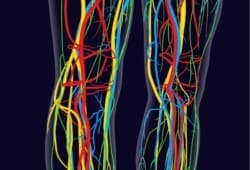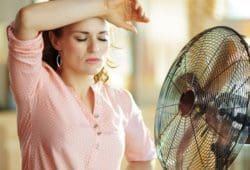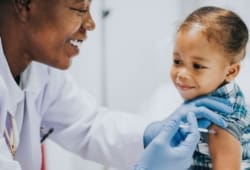- Alzheimer’s DiseaseRead Article >>Seniors
Alzheimer’s Disease
Alzheimer’s disease is a type of dementia that is most common in people over the age of 65. There…
- Depression in Older AdultsRead Article >>Seniors
Depression in Older Adults
Depression is a common problem in older adults, but it is not part of the aging process. Learn how…
- Healthy Habits at Age 60 and BeyondRead Article >>Seniors
Healthy Habits at Age 60 and Beyond
A look at tips, tricks, advice and the benefits of maintaining healthy eating and exercise habits as you get…
-

Osteoporosis
Osteoporosis is a disease of the bones and often occurs in older women.
-

Osteopenia
Osteopenia is a condition that begins as you lose bone mass and your bones get weaker.
-

RSV in Adults Over 60
Older adults (above the age of 60) are at higher risk for severe RSV infection. This is especially true if…
-

Prescription Drug Abuse in the Elderly
Prescription abuse happens when people abuse medicines prescribed by a doctor. In the elderly, it can be hard to spot…
-

Peripheral Arterial Disease and Claudication
Peripheral arterial disease (PAD) is a problem with blood flow in the arteries, especially those in the legs. Claudication is…
-

Gallstones
Gallstones are hard deposits that form inside your gallbladder. They are most often caused when cholesterol becomes solid and can…
-

Diabetes
Diabetes is a disease that occurs when your body doesn’t make or use the hormone insulin properly.
-

Sports and Exercise at Every Age
Maintaining an exercise program is important at any age. It can help you build a foundation when you’re young and…
-

Colorectal Cancer
Colorectal cancer is a cancer of the colon or the rectum that can be detected through early, regular screenings.
-

Senior Communities Tour Checklist
Moving into a senior community is a big step in your life. Making a checklist of everything you’re looking for…
-

Preventive Care for Seniors
Preventive care for seniors is particularly important, as health problems increase with age.
-

Vulvar Cancer
Vulvar cancer is not very common. If found early, vulvar cancer has a high cure rate and the treatment options…
-

The Importance of Staying Active and Involved
Your lifestyle choices will determine how quickly or slowly you age. Making healthy choices and staying socially active can help…
-

Flu Complications Risk Greater for Minority Groups
People from racial and ethnic minority groups are more likely to be hospitalized when they have the flu. They are…
-

Flu Risks and Chronic Conditions
Chronic health conditions can increase your risk of being hospitalized with influenza (the flu). Getting an annual flu vaccine is…
-

RSV (Respiratory Syncytial Virus)
Respiratory syncytial virus (RSV) is a common virus. It affects your lungs, making it difficult to breathe. The virus is…
-

Menopause
Menopause is when your menstrual periods permanently stop (12 months in a row without a period) and you can no…
-

Vaccines: Myth Versus Fact
There are many common misconceptions regarding vaccines. Use this evidence-based information to clear up any confusion.
-

Pancreatic Cancer
What is pancreatic cancer? Pancreatic cancer is a disease in which cancer cells form on your pancreas. Your pancreas is an organ. It is located behind your stomach and in front of your spine. It produces juices that break down food and control blood…
-

Urinary Incontinence
Urinary incontinence is the loss of bladder control. This means that you can’t always control when you urinate.























